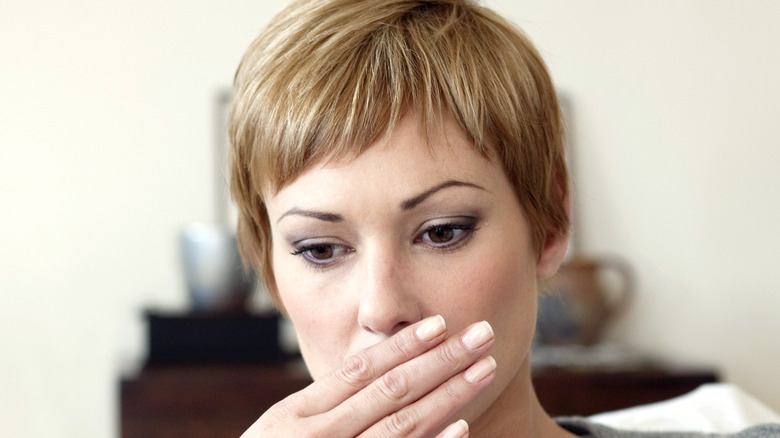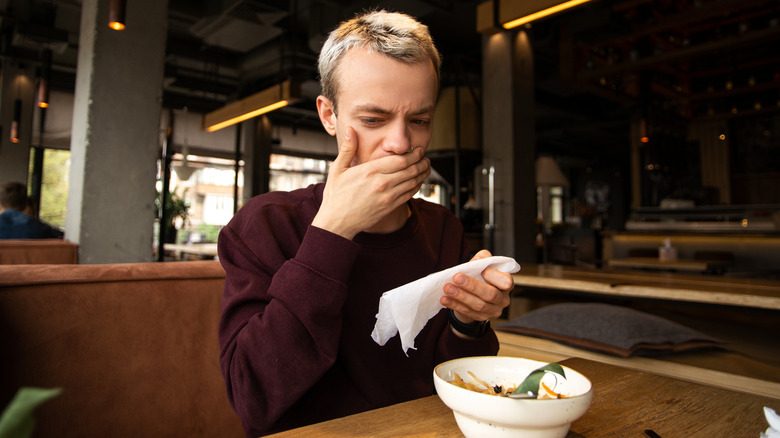When Excessive Burping Can Be A Serious Concern
Although perhaps a little embarrassing, an ill-timed burp is simply the body's natural way of expelling air from the digestive system (via Healthline). A combo of oxygen, carbon dioxide, and nitrogen, a burp can be prompted by chewing gum, talking while eating, smoking, sucking on hard candy, or eating or drinking too quickly — particularly when it comes to carbonated beverages, such as soda. Generally speaking, burps are nothing to worry about. However, in some cases, belching that's accompanied by additional gastrointestinal symptoms may be a sign of a health condition, according to Women's Health.
So how much burping is considered too much burping? "If you're burping to the point where it's bothersome and that's happening three or more days a week, that's when you should talk to a doctor," gastroenterologist Dr. Rabia De Latour told Women's Health. Excessive burping that comes with nausea, vomiting, painful bloating, or sudden weight loss can all be indicative of a bowel obstruction warranting prompt medical attention.
How to alleviate a case of the burps
In some cases, extreme burping may be due to a bacterial infection known as Helicobacter pylori (H. pylori) infection, reports Healthline. While most people do not experience illness from the bacteria, loss of appetite, abdominal pain, nausea, bloating, and unexplained weight loss can indicate an infection and will require treatment by a doctor. Head to the emergency room if you experience additional symptoms, such as bloody vomit or stool, black vomit or stool, difficulty swallowing, or extreme ongoing stomach pain.
Not all instances of excessive burping are tied to severe health conditions, however. The stomach flu, lactose intolerance, irritable bowel syndrome, acid reflux, or the unconscious swallowing of air — a condition known as aerophagia — are also associated with extreme burping (per Women's Health). Making a few minor daily adjustments may provide some relief from a case of the burps. Healthline suggests eating and drinking more slowly, avoiding drinking through a straw, limiting carbonated beverages, reducing or eliminating gum chewing, and taking a short walk after a meal. Be sure to consult with your doctor to get to the root cause of any excessive belching.


